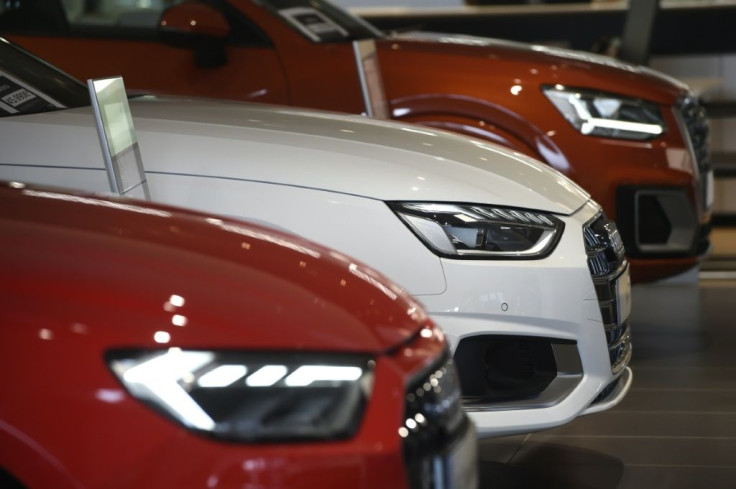EU Auto Market Set For First Drop In Seven Years: Carmakers
European new car sales are forecast to fall by two percent in 2020, their first drop in seven years, the industry trade association said Wednesday as it urged governments to aid a transition to electric vehicles.
With the EU launching its "Green Deal" to make the bloc's economy carbon neutral, the European Automobile Manufacturers' Association (ACEA) said it hopes the plan will strengthen the sector's ability to compete and boost the shift to zero-emission vehicles.
"This is all the more important as we are about to face a shrinking market," said Michael Manley, ACEA president and chief executive of FCA Chrysler.
The ACEA anticipates that after six consecutive years of growth, EU passenger car sales will decline by two percent in 2020.
"At the very time when our industry is massively stepping up investments in zero-emission vehicles, the market is set to contract -- not only in the EU but also globally -- so the transition to carbon neutrality needs to be very well managed by policy makers," an ACEA statement quoted Manley as saying.
The association called for construction of a dense network of charging points and re-fuelling stations suitable for cars and commercial vehicles.
"This is one of the single most important enabling conditions for achieving carbon neutrality," its statement said.

It called for "consistent and economically-sustainable incentive schemes for users of both cars and commercial vehicles" to ensure that higher prices for zero-emission vehicles don't dampen sales.
The European Commission unveiled last week a one-trillion-euro ($1.1-trillion) plan to finance its goal of making the bloc carbon neutral by 2050.
The auto sector is now bound to cut carbon emissions to a maximum of 95 grams of CO2 per kilometre for new models, with stiff fines waiting for carmakers that miss that target.
"It's an enormous challenge," said specialists at trade credit insurer Euler Hermes, since it means "reducing CO2 emissions by 20 percent from 2019 to 2020, whereas it took them 10 years to cut them by 25 percent."
Automakers will be expected to go even further, with an additional cut of 37.5 percent by sometime around 2030.
"The good news is that carbon-neutral road transport is possible and together - with a holistic approach - we can reach it by 2050," Manley said.
"But that also means a lot needs to change in the next few decades," he concluded.
© Copyright AFP 2024. All rights reserved.





















